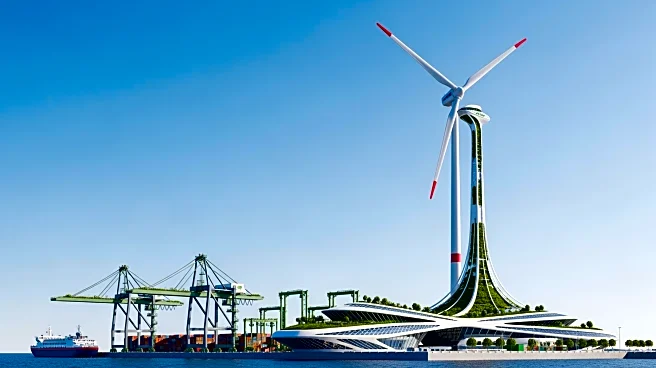What's Happening?
Ports around the world are taking significant steps to decarbonize and reduce greenhouse gas emissions, which account for 3% of global emissions. The International Maritime Organization (IMO) has set ambitious
goals to align with the Paris Agreement, aiming for a 20% reduction by 2030 and 70% by 2040. Ports are adopting alternative fuels, electrifying operations, and implementing energy management systems to achieve these targets. Innovations such as electric vessels and renewable energy sources are being utilized to enhance efficiency and reduce emissions.
Why It's Important?
Decarbonizing ports is crucial for mitigating climate change and protecting the environment. Ports play a vital role in global trade, and their emissions contribute significantly to air pollution and climate change. By adopting sustainable practices, ports can reduce their environmental impact and support local economies. The transition to cleaner energy sources and technologies not only helps achieve climate goals but also offers economic benefits through reduced operational costs and improved efficiency.
What's Next?
The pathway to decarbonization involves specific steps, including analyzing economic cases for action, exploring alternative fuel options, and developing roadmaps for fuel conversion. Ports are encouraged to collaborate with authorities and stakeholders to implement these strategies effectively. As the shipping industry continues to grow, ongoing efforts to reduce emissions will be essential to achieving net-zero targets by 2050.











